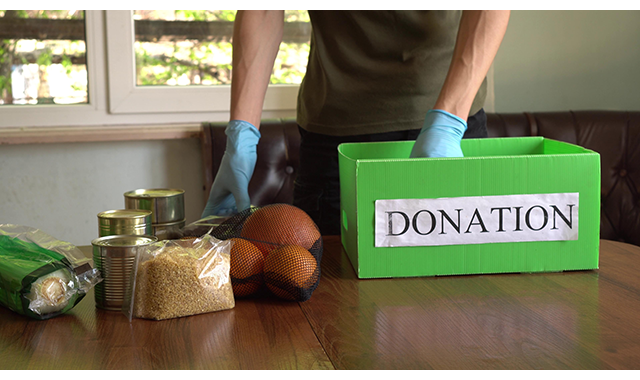Helping others through COVID-19
Here are some ideas of ways to help others during this difficult time.

The sun is shining, and it looks like an incredibly beautiful day, except for one thing. We are hunkered down in our homes as we practice social distancing. It feels like there is no end in sight. Life has changed as we know it.
The healthcare system is overwhelmed, and we are hearing reports that our healthcare professionals don’t have adequate protective equipment. They are trying to save lives while under unbearable stress and are scared for their own health. Inadequate equipment is inexcusable, but they don’t have the luxury to get enraged. They still must go and save lives. Imagine if you took care of COVID-19 patients and became ill. You might be terrified that you could bring home this illness to your loved ones. This is a real fear for so many of our heroes.
This is a new era for our generation. There really has been nothing like this since 1918 brought the Spanish Flu pandemic. Roughly 500 million people were infected resulting in 50 million deaths worldwide according to the Centers for Disease Control. This is truly sobering.
The Ohio Department of Health contacted all licensed social workers across the state last week asking us to register for the pandemic as they prepare a contingency plan. It felt like I was in a draft-even though it was voluntary to register, I really didn’t have a choice. After all, we are at war with this illness. What will happen when the front line of healthcare workers gets ill or overwhelmed? There must be back up to take care of the sick. This wasn’t a typical questionnaire a social worker would normally ever see. It asked if I was trained in ventilator management among other nursing duties. We are not trained or licensed for hands-on-care. But, with a system that will soon be overwhelmed, it will be all hands-on-deck.
I knew I had to do the right thing and register-there really is no choice. It isn’t just about self-preservation anymore; it’s about helping other people. This made me think of all the other ways we can help others, so I’ve compiled a list of ways to contribute, even from a distance.
What can you do to help others?
- Help a neighbor. Call someone who lives alone and even offer to deliver their groceries (while still practicing social distancing), especially your eldering neighbors, who are a high-risk category.
- Find ways to volunteer. Not only is it good for your community, volunteering also helps lower the risk of depression and can reduce stress levels. With unemployment at an all-time high, food pantries and other similar programs are overwhelmed. The Washington Post has gathered a great resource on what organizations need help and ways to get involved safely.
- Check in on loved ones who may be struggling. While social distancing efforts are critical in mitigating the spread of COVID-19, the consequences will be high for those with mental illnesses, according to JAMA. Outbreaks can be stressful and fear and anxiety about a disease can be overwhelming. Checking in with friends and family who have a mental illness can help them feel less isolated, and the CDC recommends monitoring these loved ones, especially during the pandemic.

- Help others learn new technology. Virtual hangouts will be our new normal for the foreseeable future. So, teaching family how to use Zoom, FaceTime, Skype, etc. can change their lives and allow them to connect with others.
- Plan virtual social events for your family. Game nights, music recitals, and family dinners are all examples of events that can be done virtually. Use your imagination!
- Take your club or organization online. All these groups will fade away if they do not move online for meetings and programs. This can include Rotary groups, Chambers of Commerce, religious institutions, book clubs, theaters, fundraising groups, job seeking groups, professional associations, PTAs, etc.
- Go on a virtual walk with someone. Grab your headphones and chit-chat with a friend while you’re both out on a walk. You won’t be physically together, but you are together doing something healthy and stress-reducing.
- Join an online aerobics class. It’s not only a healthy activity, but also a great way to support your local instructors who have to shift to online-only classes.
- Get organized. Get your neighbors email addresses and start a Facebook page to share information or resources and check in on each other.
- Practice self-care. It’s hard to look after others if you aren’t looking after yourself. Whether that’s staying active and eating healthy, maintaining an at-home routine, avoiding anxiety-inducing news or media, or simply going for a walk (while social distancing, of course), it’s important to monitor your own stress levels and well-being.
The name of the game is helping others. Even if you can’t help face-to-face, there are still ways to provide a valuable service to those in need. Ask yourself, what are you doing to help others during this pandemic?
I look forward to hearing your answers. Email me at diana2@discussdirectives.com.